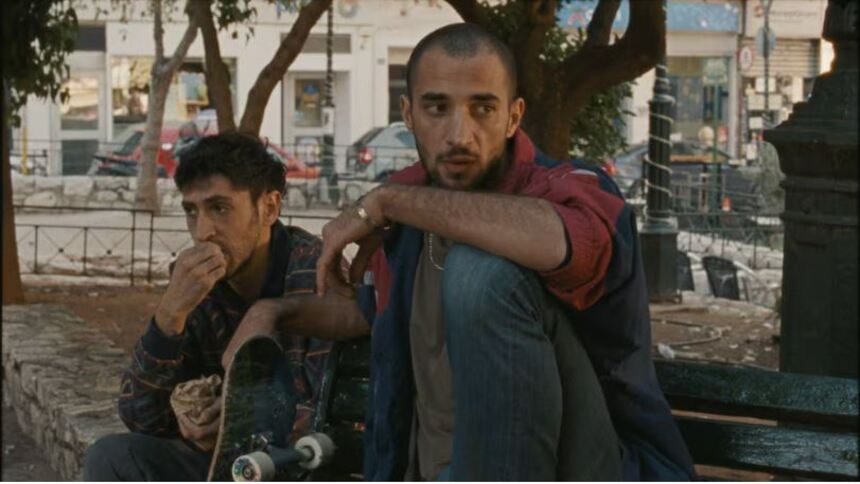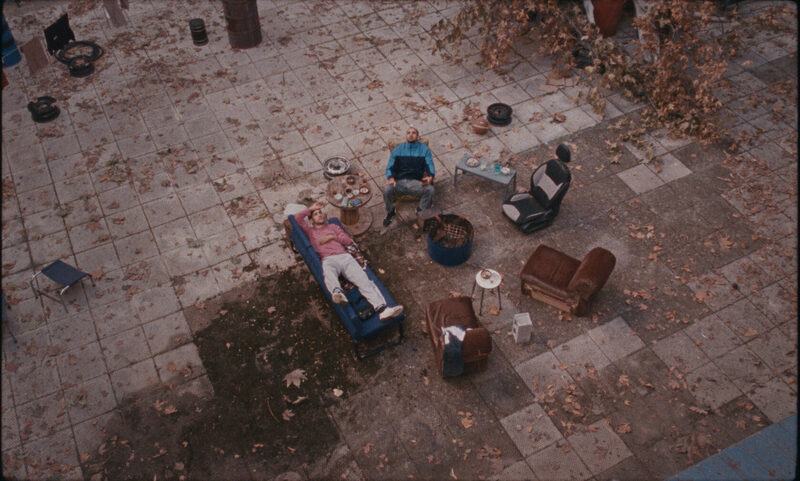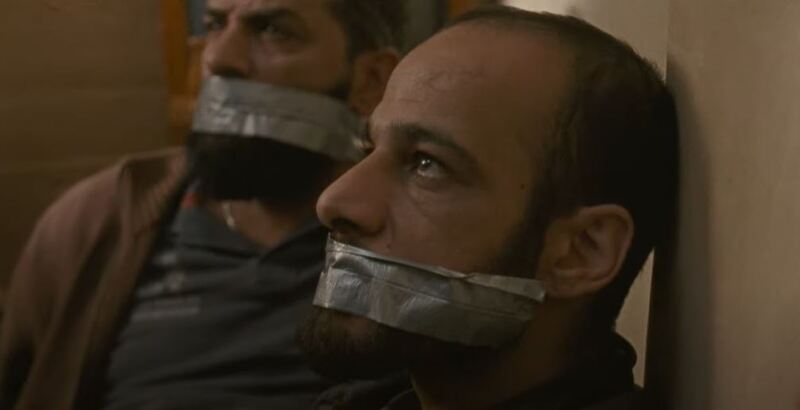Mediterrane 2024 Review: TO A LAND UNKNOWN Challenges Conventional Immigrant Dramas
Palestinian-Danish filmmaker Mahdi Fleifel navigates the harrowing realities of exile and survival, set against the dilapidated backdrop of Athens, in a bold departure from his documentary roots.

The dilapidated streets and squats of Athens provide a gritty backdrop for the immigrant social thriller, To a Land Unknown.
This film marks Mahdi Fleifel’s first venture into feature-length fiction. The story follows two Palestinian cousins, Chatila (Mahmood Bakri) and Reda (Aram Sabbah), who find themselves stranded in Greece while attempting to reach Germany in search of a better life.
Mahdi Fleifel, a Palestinian-Danish filmmaker, has previously garnered attention for his documentary work, particularly his debut, A World Not Ours, which delved into the realities of life in the Ein El-Helweh refugee camp in Lebanon. In To a Land Unknown, Fleifel transitions to narrative fiction, preserving the authenticity and socio-political undertones characteristic of his earlier documentaries, while adopting a more stylistic, genre-focused approach.
Fleifel’s work frequently explores themes of exile and statelessness, evident in his shorts A Man Returned and A Drowning Man. He continues to address these issues but introduces a fresh narrative twist with a heist plotline in To a Land Unknown.
This element pays homage to the gritty, urban cinema of Scorsese and De Palma. The film follows the cousins as they are driven to desperate measures, adopting an "ends justify the means" mentality in their efforts to escape their dire circumstances.
Fleifel co-wrote the script with Fyzal Boulifa and Jason McColgan, drawing from real-life testimonies and immigrant experiences. In their struggle to reach Germany, Chatila and Reda resort to petty theft to gather enough money to buy forged passports. Trapped in Greece, they are unable to secure legal employment or leave the country.
Their journey is marked by previous encounters with smugglers and hostilities in other nations, which ultimately led to their current predicament. The situation further deteriorates when Reda, having previously gone cold turkey, relapses into drug use and squanders their hard-earned savings.
In their search for alternative routes to freedom or funds, Chatila and Reda encounter Malik (Mohammad Alsurafa), a 13-year-old Palestinian boy abandoned by smugglers en route to his aunt in Italy. As a bond forms between Malik and Reda, who becomes a sort of older brother to the boy, the cousins devise a plan to help Malik reach his destination.
Chatila, the strategic mind behind their operations, seduces Tatiana (Angelika Papoulia), a woman he meets by chance in a supermarket. Papoulia, known for her roles in numerous European arthouse films, portrays a complex character whose initial reluctance gives way under Chatila's pressure tactics.
Despite their underlying morals and principles shaped by their backgrounds, the cousins find themselves morally compromised by their desperate circumstances. Chatila, who has a wife and children trapped in a Lebanese refugee camp, is driven to exploit Tatiana's emotions and, when necessary, resort to intimidation to ensure her cooperation.
Meanwhile, Reda, the more naïve and vulnerable of the two, grapples with his addiction, leading him to prostitute himself to older men in a nearby park and steal shoes from shops to sustain his habit. This stark contrast between the cousins highlights their differing responses to the extreme pressures of their plight.
The success of organizing Malik’s extraction inspires Chatila to devise a more audacious plan: posing as smugglers. This new scheme thrusts the cousins into increasingly extreme and inhumane actions against other stranded refugees, pushing the boundaries of their moral limits.
Collaborating with Greek cinematographer Thodoris Mihopoulos, Fleifel captures Athens's ambiance using a 16mm camera, evoking the aesthetic of 1970s cinema. The film's visual style, characterized by low-light sequences and gritty realism, enhances the tense and often claustrophobic atmosphere. Fleifel blends social realist drama with elements of a buddy film, interwoven with strong thriller overtones, creating a unique and compelling narrative experience.
While To a Land Unknown is a political film, it avoids the didacticism of activist cinema. Instead, it refrains from moral judgments, presenting the protagonists' actions and those around them as survival strategies in an unforgiving environment.
Fleifel offers an unvarnished look at the refugee crisis, confronting the harsh realities faced by desperate people pushed to desperate measures. The film explores themes of identity, belonging, and the relentless pursuit of freedom, depicting the personal values of those displaced by conflict and poverty.
The cinematography by Mihopoulos employs a claustrophobic framing, with the intense climax occurring within the confines of four walls. Despite the grim subject matter and the protagonists' bleak fates, Fleifel avoids descending into poverty porn.
He skillfully weaves genre elements into the social realist drama, making the film more engaging and gripping. The narrative, infused with urban elements like skating, hustling, and poetry mistaken for rapping, shifts the focus from traditional depictions of refugee life.
Fleifel challenges conventional immigrant drama by limiting geographic movement, instead depicting the protagonists' descent into a downward spiral. To a Land Unknown is, above all, a humanist tale that extends the conversation on immigration. Despite its clear three-act structure, the film touches on multiple motifs as the protagonists' choices and opportunities dwindle, revealing a predatory world even within their own community.
To a Land Unknown won the Jury’s Choice Award at the Mediterrane Film Festival 2024.
To a Land Unknown
Director(s)
- Mahdi Fleifel
Writer(s)
- Fyzal Boulifa
- Mahdi Fleifel
- Jason McColgan
Cast
- Angeliki Papoulia
- Mahmood Bakri
- Mohammad Ghassan









